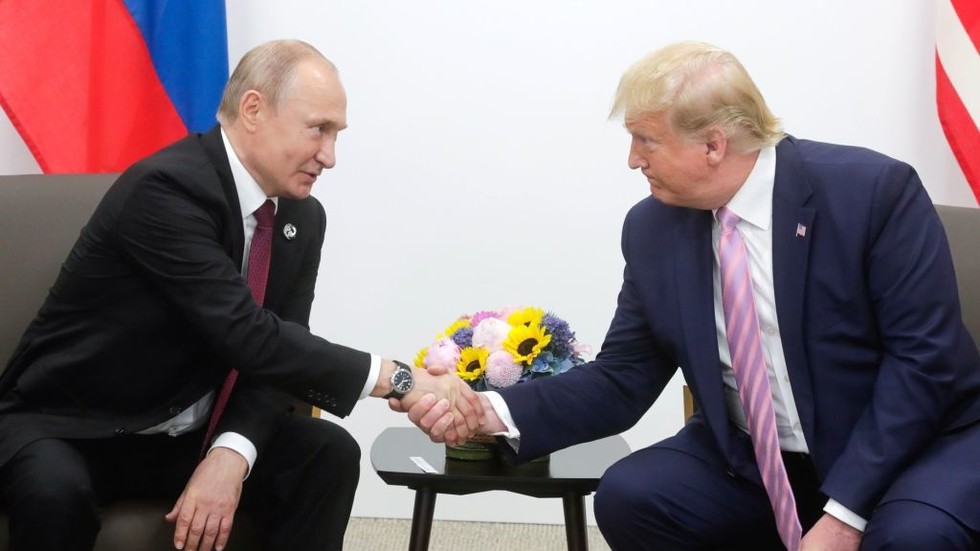Former U.S. President Donald Trump has stirred conversation regarding his relationship with Russian President Vladimir Putin, especially in the context of the ongoing Ukraine conflict. In a recent interview, Trump was ambiguous about whether he has communicated with Putin since leaving office in 2021 but suggested that establishing such contacts would be a “smart thing” to do. This statement comes amidst claims made in journalist Bob Woodward’s new book, “War,” which asserts that Trump had seven secret discussions with Putin after his presidency began. While Trump’s campaign initially dismissed Woodward’s claims as false, Trump’s remarks imply an openness to dialogue with Putin, emphasizing the importance of maintaining good relationships with leaders who possess considerable military power, specifically referencing nuclear weapons.
Trump has consistently maintained that the Ukraine crisis would not have escalated if he had been re-elected in 2020, attributing the outbreak of conflict to President Joe Biden’s rhetoric. He has criticized Biden and Vice President Kamala Harris, suggesting that their assurances of unlimited support for Ukraine could inadvertently lead the U.S. towards a larger conflict, potentially World War III. Trump’s perspective highlights his belief that effective diplomacy, particularly with Russian leadership, is crucial to preventing further escalation and maintaining global stability.
In a recent meeting with Ukrainian President Volodymyr Zelensky, Trump proclaimed that he shares a “very good relationship” with both Zelensky and Putin, expressing confidence in his ability to resolve the Ukraine situation swiftly if he regains the presidency. Trump’s campaign team, including his running mate J.D. Vance, has suggested that his strategy would involve negotiations among Russia, Ukraine, and European parties to establish a demilitarized zone, contingent upon Ukraine’s commitment to refrain from NATO membership. This approach aims at addressing the regional security concerns while mitigating the conflict that has seen significant loss and displacement in Ukraine.
However, the Kremlin has expressed skepticism about Trump’s ability to effectuate peace between the warring parties. Dmitry Peskov, a spokesperson for Putin, indicated that he doubts there is a “magic wand” solution available to resolve the fighting, signaling that the complexities of international security and the entrenched positions of both sides need careful handling. This response highlights the challenges Trump would face in executing any proposed peace negotiations and suggests that simply sharing a friendly rapport with the involved leaders may not be sufficient to achieve a lasting resolution.
The discourse surrounding Trump’s relationship with Putin and the ongoing Ukraine crisis underscores a broader debate regarding U.S. foreign policy and its role in international conflicts. Trump’s assertions that he could use his connection with Putin to swiftly end hostilities reflect a familiar theme of leveraging personal diplomacy to navigate geopolitical tensions. Critics, however, warn that such an approach might oversimplify the intricate realities of the conflict and fail to address fundamental issues of sovereignty and international law that underpin the crisis.
As the upcoming presidential election draws nearer, Trump’s statements about resolving the Ukraine conflict will likely continue to resonate with his base and shape his campaign narrative. His willingness to engage with contentious figures like Putin as a means of fostering security and peace might appeal to voters disenchanted with conventional diplomatic strategies. Yet, the ultimate effectiveness of such rhetoric remains to be seen, especially as tensions persist and the stakes grow in light of ongoing military and humanitarian developments in Ukraine and across Europe.

